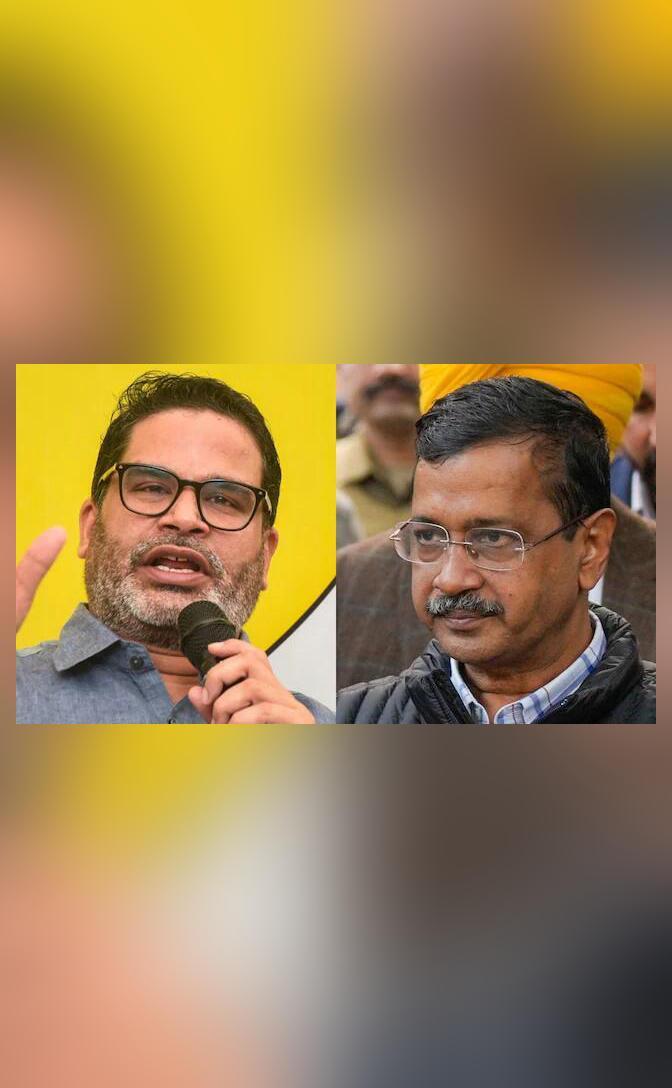
Prashant Kishor Lists Reasons Why Kejriwal & AAP Lost in Delhi Elections
The Delhi Assembly elections 2020 saw a major upset, with the Aam Aadmi Party (AAP) led by Arvind Kejriwal losing power after a stellar performance in the previous elections. The party, which was expected to repeat its success, was trounced by the Bharatiya Janata Party (BJP) and its allies. The defeat was a shock to many, and many are still trying to figure out what went wrong. One person who has shed some light on the reasons behind AAP’s defeat is Prashant Kishor, a seasoned politician and former political strategist.
In a recent interview, Kishor shared his thoughts on what went wrong for Kejriwal and AAP in the Delhi polls. According to Kishor, Kejriwal’s decision to resign as Delhi Chief Minister after being granted bail in the liquor policy case was a “big strategic mistake”. This move, Kishor believes, took away from the party’s narrative and allowed the BJP to gain an upper hand.
Kejriwal had resigned as Chief Minister on February 14, 2020, after being granted bail in the liquor policy case. The move was seen as a bid to clear his name and restore his reputation, but Kishor believes it backfired. “Resigning after the bail was a big strategic mistake,” Kishor said. “It was a moment of triumph, but he chose to resign. It was a missed opportunity to consolidate his position.”
Another reason Kishor cited for AAP’s defeat was the 10-year anti-incumbency factor. AAP had been in power in Delhi for the past five years, and Kishor believes that this led to a natural wear and tear. “When a government is in power for a long time, people start feeling that they are not being heard, that their issues are not being addressed,” Kishor said. “AAP was not able to address these issues effectively, and that led to a natural anti-incumbency factor.”
Kishor also believes that Kejriwal’s fluctuating stance on joining and exiting the INDI Alliance hurt his credibility. The INDI Alliance was a coalition of smaller parties that supported AAP in the Delhi polls. However, Kejriwal’s decision to join the alliance and then exit it at the last minute led to confusion among voters. “Kejriwal’s stance on the INDI Alliance was unclear,” Kishor said. “He joined it, and then he exited it. This created confusion among voters, and they lost trust in him.”
Kishor also believes that AAP’s campaign was not effective. The party’s campaign was focused on issues like education, healthcare, and the economy, but Kishor believes that it did not resonate with voters. “AAP’s campaign was not effective in communicating its message to voters,” Kishor said. “They did not have a clear narrative, and that led to confusion.”
Another reason Kishor cited for AAP’s defeat was the lack of a strong campaign manager. AAP did not have a strong campaign manager, and this led to a lack of coordination and strategy. “A strong campaign manager is essential to win elections,” Kishor said. “AAP did not have someone who could coordinate their campaign effectively, and that led to a lack of strategy.”
Kishor also believes that AAP’s social media campaign was not effective. The party had a strong presence on social media, but Kishor believes that it was not used effectively. “AAP’s social media campaign was not effective in reaching out to voters,” Kishor said. “They did not have a clear strategy, and that led to a lack of engagement.”
In conclusion, Kishor believes that AAP’s defeat in the Delhi polls was due to a combination of factors. Kejriwal’s resignation as Chief Minister, the 10-year anti-incumbency factor, his fluctuating stance on the INDI Alliance, the lack of a strong campaign manager, and the ineffective social media campaign all contributed to the party’s loss.
It is worth noting that Kishor has been a vocal critic of AAP in the past, and his views on the party’s defeat may be biased. However, his analysis provides some interesting insights into what went wrong for AAP in the Delhi polls.
Source:






